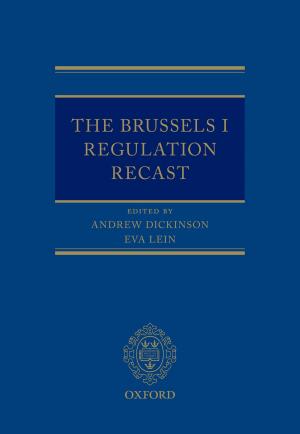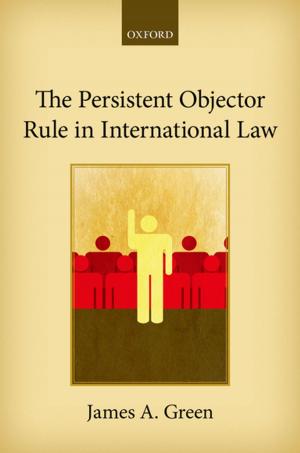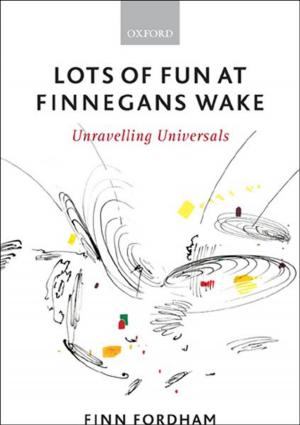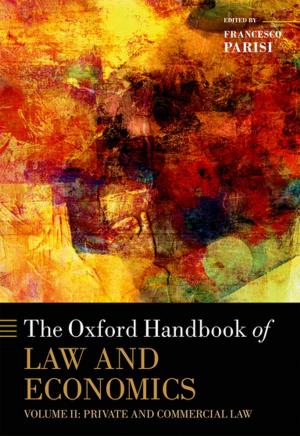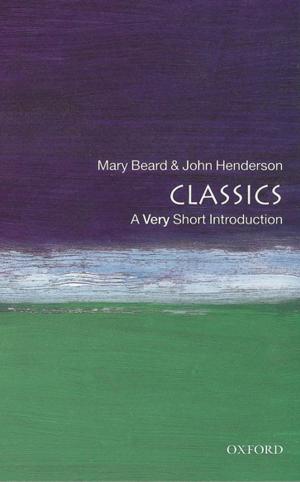The Psychology of Music Performance Anxiety
Nonfiction, Health & Well Being, Psychology, Cognitive Psychology, Entertainment, Music| Author: | Dianna Kenny | ISBN: | 9780191620997 |
| Publisher: | OUP Oxford | Publication: | June 16, 2011 |
| Imprint: | OUP Oxford | Language: | English |
| Author: | Dianna Kenny |
| ISBN: | 9780191620997 |
| Publisher: | OUP Oxford |
| Publication: | June 16, 2011 |
| Imprint: | OUP Oxford |
| Language: | English |
Why are some performers exhilarated and energized about performing in public, while others feel a crushing sense of fear and dread, and experience public performance as an overwhelming challenge that must be endured? What are the factors that produce such vastly different performance experiences? Why have consummate artists like Frederic Chopin, Sergei Rachmaninoff, Pablo Cassals, Tatiana Troyanos, and Barbra Streisand experienced such intense music performance anxiety? This is a disorder that can affect musicians across a range of genres and of all standards. Some of the 'cures' musicians resort to can be harmful to their health and detrimental to their playing. This is the first rigorous exposition of music performance anxiety. In this groundbreaking work, Dianna Kenny draws on a range of disciplines including psychology, philosophy, phenomenology, psychoanalysis, and performance theory in order to explain the many facets of music performance anxiety that have emerged in the empirical and clinical literature. She identifies some unifying guiding principles that will enhance our understanding of the condition and guide researchers and clinicians in the development of effective treatments. The book provides a detailed conceptual framework for the study of music performance anxiety and a review of the empirical and clinical research on the anxiety disorders. In addition it presents a thorough analysis of the concepts related to music performance anxiety, its epidemiology, and theories and therapies that may be useful in understanding and treating the condition. The voices of musicians are clearly heard throughout the book and in the final two chapters, we hear directly from musicians about how they experience it and what they do to manage it. This book will lay a firm foundation for theorizing music performance anxiety and be of enormous value interest to those in the fields of music and music education, clinical psychology, and performance studies.
Why are some performers exhilarated and energized about performing in public, while others feel a crushing sense of fear and dread, and experience public performance as an overwhelming challenge that must be endured? What are the factors that produce such vastly different performance experiences? Why have consummate artists like Frederic Chopin, Sergei Rachmaninoff, Pablo Cassals, Tatiana Troyanos, and Barbra Streisand experienced such intense music performance anxiety? This is a disorder that can affect musicians across a range of genres and of all standards. Some of the 'cures' musicians resort to can be harmful to their health and detrimental to their playing. This is the first rigorous exposition of music performance anxiety. In this groundbreaking work, Dianna Kenny draws on a range of disciplines including psychology, philosophy, phenomenology, psychoanalysis, and performance theory in order to explain the many facets of music performance anxiety that have emerged in the empirical and clinical literature. She identifies some unifying guiding principles that will enhance our understanding of the condition and guide researchers and clinicians in the development of effective treatments. The book provides a detailed conceptual framework for the study of music performance anxiety and a review of the empirical and clinical research on the anxiety disorders. In addition it presents a thorough analysis of the concepts related to music performance anxiety, its epidemiology, and theories and therapies that may be useful in understanding and treating the condition. The voices of musicians are clearly heard throughout the book and in the final two chapters, we hear directly from musicians about how they experience it and what they do to manage it. This book will lay a firm foundation for theorizing music performance anxiety and be of enormous value interest to those in the fields of music and music education, clinical psychology, and performance studies.






